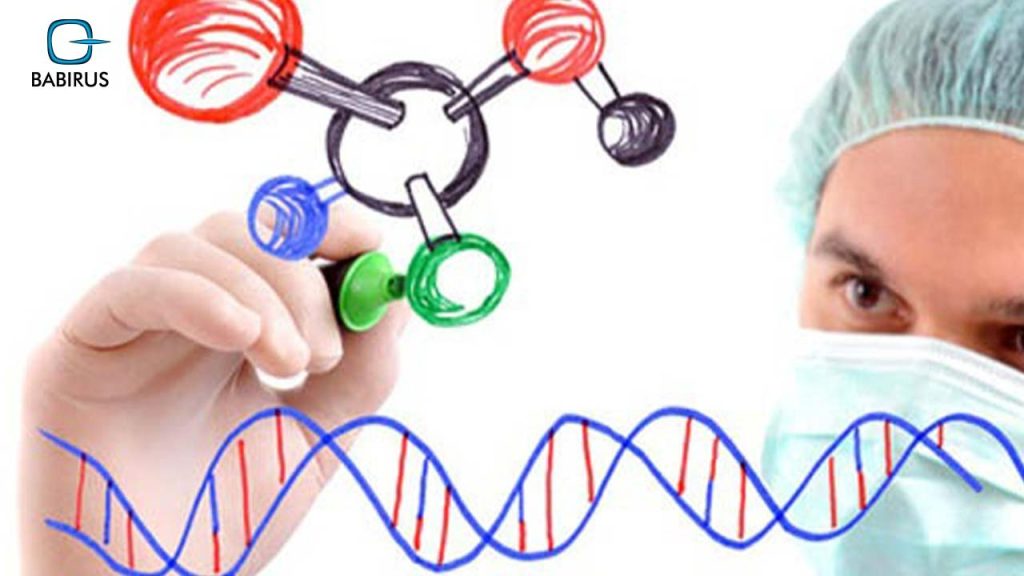14 Questions for Personalized Medicine

Personalized medicine works to deliver the best medical for each person based on his/her own condition, moreover, sharing answers to the most important questions for personalized medicine will help you understand all the attached details better.
Although there are some serious ethical, privacy, and security concerns in personalized medicine, yet its great benefits are driving even more interest in personalized medicine.
Stay with us to get the best personalized medicine questions and answers from the Babirus personalized medicine guide.
What Is Personalized Medicine?
Personalized medicine is the practice of providing personalized medical care and preventive services based on a patient’s unique genetics, environment, and lifestyle.
Most questions for personalized medicine focus on the goal of it, so let us tell you that is mainly to improve treatment outcomes, minimize side effects, and enhance overall patient experience.
Accessibility and Cost:
The affordability and accessibility of personalized medicine are increasing with all the developments in the field of personalized medicine.
1. Can Everyone Afford Personalized Medicine Treatments?
Affordability and accessibility are vital factors in guaranteeing that everyone can benefit from personalized medicine.
However, while the cost of genetic testing and related technologies has reduced over the years, yet, there are still heavy financial barriers for many individuals.
2. Will Insurance Cover These Tests and Therapies?
As with any other condition, the insurance coverage for personalized medicine treatments and tests can vary, depending on the specific plan and the country of residence.
3. How Can We Ensure Equitable Access to This Technology?
Governments and private companies can work together to create policies and programs that make personalized medicine affordable and accessible for all.
This could include covering the cost of genetic tests and therapies, increasing insurance coverage, or offering financial support to patients who need it.
Data Privacy and Security:
These questions for personalized medicine aim to cover the ethical considerations of personalized medicine:
4. Who Owns My Genetic Data?
In most jurisdictions, the individual whose genetic data is being collected is considered the owner of that data. This means that they have the right to control how their genetic information is used, shared, and stored.
However, the situation is not always straightforward, as the ownership of genetic data may be shared between the individual, the testing company, and other parties involved in the process:
– Individual ownership.
– Testing company ownership.
– Research institutions and pharmaceutical companies.
5. How Is My Data Stored and Protected?
All involved healthcare providers, researchers, and technology companies must take strong security measures and follow strict privacy guidelines to protect patient data.
This could include encrypting sensitive information, restricting access to authorized personnel, and obtaining patient consent before collecting and sharing genetic information.
6. Can My Genetic Information Be Used Against Me?
The potential misuse of genetic information in personalized medicine is a valid concern. Genetic information can be used to discriminate against individuals in various aspects of their lives, including employment, insurance, and access to healthcare.
Moreover, to address these concerns, legislation such as the Genetic Information Nondiscrimination Act (GINA) has been implemented in the United States and other countries to protect individuals from genetic discrimination.
Unfortunately, and despite these legal protections, there are still potential risks associated with the misuse of genetic information. For instance, insurance companies and employers may find ways to indirectly access an individual’s genetic information through third-party entities, such as employers’ wellness programs or life insurance applications.
Ethical Considerations:
All the ethical questions for personalized medicine aim to share more trust regarding the work and benefits of personalized medicine.
7. Is It Fair to Discriminate Based on Genetic Information?
It is illegal for an employer to discriminate against you because of the combination of your genetic information and another protected category, such as gender.
8. Should Genetic Testing Be Mandatory?
Genetic testing is useful in many areas of medicine and can change the medical care you or your family member receives.
For example, the different types of genetic testing can provide a diagnosis for a genetic condition such as Fragile X or information about your risk of developing cancer.
9. Who Should Have Access to My Genetic Data?
All those who might be at risk or all those who have inherited it.
Effectiveness and Accuracy:
The answers to these questions for personalized medicine will share with you the high level of effectiveness and accuracy attached to the results of personalized medicine.
10. How Accurate Are Personalized Medicine Tests?
The accuracy of these tests plays an essential role in the effectiveness of personalized medicine, however, these are 2 main factors that directly impact the accuracy and results of personalized medicine:
- One of the primary factors affecting the accuracy of personalized medicine tests is the genetic variability among individuals. Genetic testing, for example, can only provide a snapshot of an individual’s genetic makeup, which can vary across different ethnicities and populations. Additionally, genetic tests may not cover all known genetic variations associated with a specific condition, leading to potential false negatives or false positives.
- Another factor affecting accuracy is the lack of standardization in the development and validation of personalized medicine tests. Different laboratories may use different methods and technologies, which can lead to variations in test results and accuracy. Moreover, the interpretation of test results can be subjective, depending on the expertise and experience of the healthcare professionals involved.
Furthermore, and despite these challenges, personalized medicine tests have shown promising results in various fields, such as oncology, cardiology, and immunology.
11. How Effective Are Personalized Treatments Compared to Traditional Approaches?
Personalized treatments have shown more effective outcomes than traditional approaches in many cases.
Due to the fact that personalized treatments take into account an individual’s unique genetic makeup, lifestyle, and medical history, allowing for a more targeted and tailored approach to treatment.
Thus, we can say that personalized treatments have the potential to revolutionize the way we approach healthcare and improve patient outcomes.
12. What Are the Limitations of Personalized Medicine?
There are several limitations to personalized medicine:
– Cost: Personalized treatments can be more expensive than traditional one-size-fits-all approaches, as they often involve specialized testing and individualized treatment plans.
– Access: Not everyone has equal access to personalized medicine, as it may require expensive genetic testing or specialized healthcare providers that are not available to all patients.
– Data and privacy concerns: Personalized medicine relies heavily on genetic and personal health data, raising concerns about privacy and potential misuse of this information.
– Ethical considerations: Personalized medicine raises ethical questions about how to handle potentially life-altering information, such as genetic predispositions to certain diseases, and the potential for discrimination based on genetic traits.
– Limited evidence: While personalized medicine holds promise, there is still limited evidence for the long-term effectiveness of many personalized treatments, as the field is still relatively new.
– Complex regulatory landscape: Personalized medicine presents unique regulatory challenges, as it blurs the lines between diagnostics and treatment, and may not fit neatly into existing regulatory frameworks.
– The need for strong infrastructure: Personalized medicine may require significant investment in infrastructure for genetic testing, data analysis, and specialized expertise, which may not be readily available in all healthcare settings.
Psychological and Social Impact:
The social and psychological impact of genetic testing varies depending on many factors. Yet regarding the amazing answers they provide about your health, we can say that they are minor impacts to consider.
13. How Could Knowing My Genetic Risks Affect My Mental Health?
Knowing your genetic risks can have a significant impact on your mental health in several ways:
- Anxiety and worry.
- Guilt and self-blame.
- Family dynamics.
- Coping strategies.
14. How Can We Support Individuals Emotionally When Faced with Difficult Genetic Information?
Receiving difficult genetic information can be an emotionally challenging experience for individuals. This information may include a diagnosis of a genetic disorder, the identification of a genetic predisposition to a certain condition, or the discovery of carrier status for a genetic disease.
It is essential to provide meaningful support to individuals facing these circumstances, acknowledging the complexity of their emotions and offering appropriate resources to help them navigate this challenging terrain:
- Empathy and active listening.
- Providing accurate information.
- Access to counseling and support groups.
- Holistic support services.
- Respecting autonomy and personal choices.
Last but not least,
Knowing all these professional answers to the most important questions for personalized medicine will help you for sure understand it better and benefit from all the attached advantages in the best way.
Therefore, if you have anything regarding the UAE and personalized medicine, you can just contact Babirus to get the best answers.

